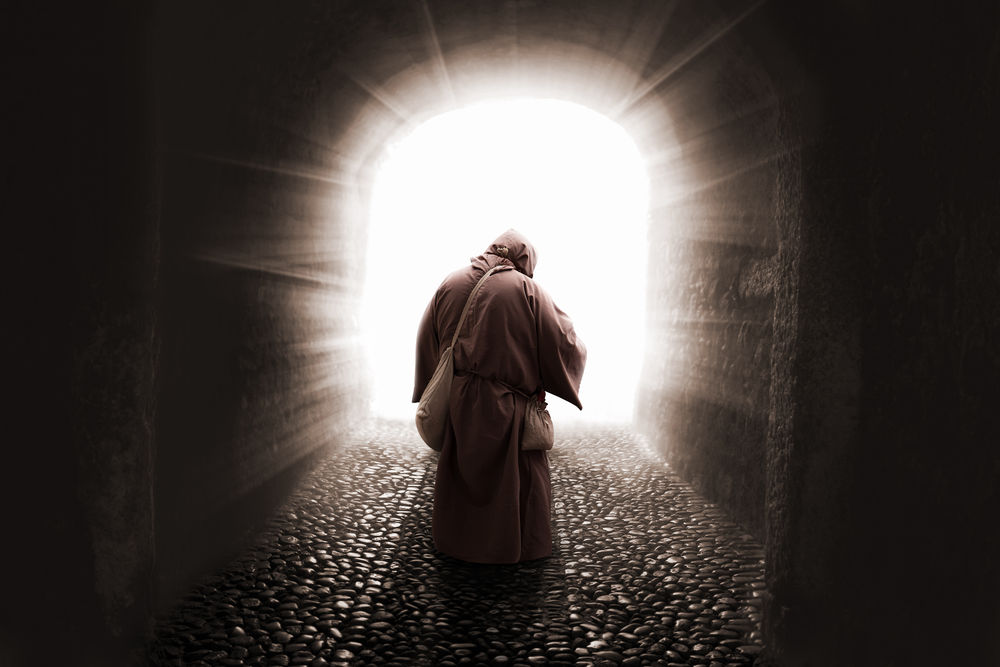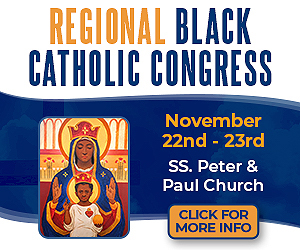In these final weeks of the liturgical year, the Church places before us the two great solemnities — All Souls’ Day and All Saints’ Day — to remind us of our destination, to the goal of our lives.
The Gospels in these days are serious, as Jesus presents many parables and directives about our lives and our destiny. His purpose is to remind us of our calling to holiness and to become saints. This is the meaning of our Christian lives.
In one of the parables we hear this week, Jesus tells us: “Gird your loins and light your lamps! And be like servants who await their Master’s return from a wedding.”
Our whole lives are meant to be lived as if we are servants waiting for our Master. But this time of waiting is not meant to be passive. Just the opposite. This time of waiting is a time of mission. It is a time for growing in holiness and for taking responsibility for the mission of Jesus Christ and his Church.
“Gird your loins” means we need to make ourselves ready to meet the Master. And in preparing ourselves for God, we need to pay special attention in our lives to prayer.
We should never take prayer for granted or treat it as if it is something “extra” that we will “get to” when we find the time. For us, prayer should be like food or like breathing — something essential.
Through prayer we bring ourselves into conversation with the living God, and we open ourselves to his intentions for our lives. Through prayer we learn to live with our eyes wide open, with our minds alert to see the beauty, the reality of the world as God wants us to see it.
The vigilance that Jesus calls us to, the “watchfulness,” is a new way of seeing, a new way of understanding. He wants us to open our eyes to see God’s plan unfolding in the events of our lives and in what is going on in the world.
Jesus wants us to see that the whole of creation, all of history — even the details of our ordinary lives — all of this is unfolding in his Providence, according to his design and his will. As St. Paul taught us, God’s will is our sanctification. He wants every one of us to be holy as he is holy. His will is for us to be saints, to be his sons and daughters.
And the way we become saints is by aligning our will with his divine will.
The psalmist tells us: “Here I am, Lord; I come to do your will. … Sacrifice or oblation you wished not, but ears open to obedience you gave me.” This is the attitude that Jesus wants from us. Training our will, our hearts and our minds so that we want what God wants. So that we live as he calls us to live.
We need to bring everything in our lives into obedience to the will of God — our thoughts and attitudes, our actions and priorities. That means making ourselves available, offering ourselves to God in every moment, in every circumstance.
Jesus also commands us, “Light your lamps.” This is a call to live our lives with a sense of purpose and mission. Jesus is the light of the world. But the light of Christ can only be as bright as the light that Christians shine in the world!
So, Jesus is calling us to carry his light into the lives of the people we meet. He is calling us to fill this world with good works, works of light that will scatter every darkness we find in this world.
We are servants waiting for our Master. And Jesus tells us that the Master will come, knocking on the door of our hearts.
He makes a beautiful promise: If the Master finds us prepared, and if we open our hearts to welcome him, he will come in to serve us. We will eat with him and drink with him.
In every Eucharist, our Lord comes to us as a servant — a servant who comes to serve us, his servants.
The Master comes to be our food, to strengthen us on our journey of our lives, this journey of “waiting.” We serve him in this world. But at his holy altar, he comes to serve us. And in every Eucharist, we look forward to his coming to meet us at the end of our lives and at the end of time.
Pray for me this week and I will be praying for you. And as we enter these final days of the Church’s year, let us try to be more attentive to preparing for the Master to come, especially at Mass.
And let us ask Mary, our Blessed Mother, to help us to do God’s will — that we will be those blessed servants who are found watching, praying and doing good works when the Master comes.
You can follow Archbishop Gomez daily via Facebook, Twitter and Instagram.

